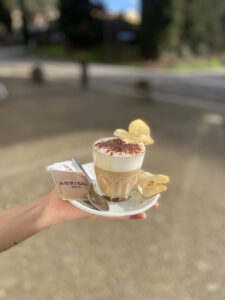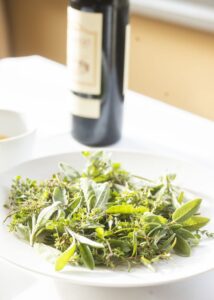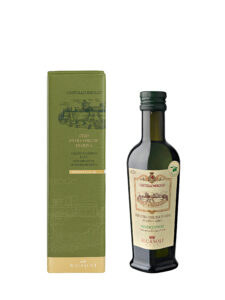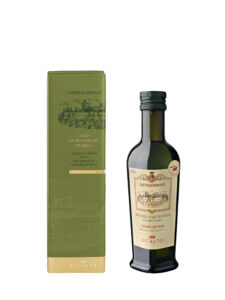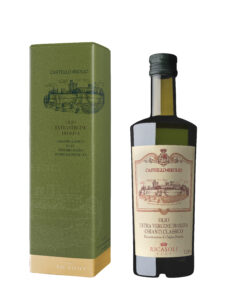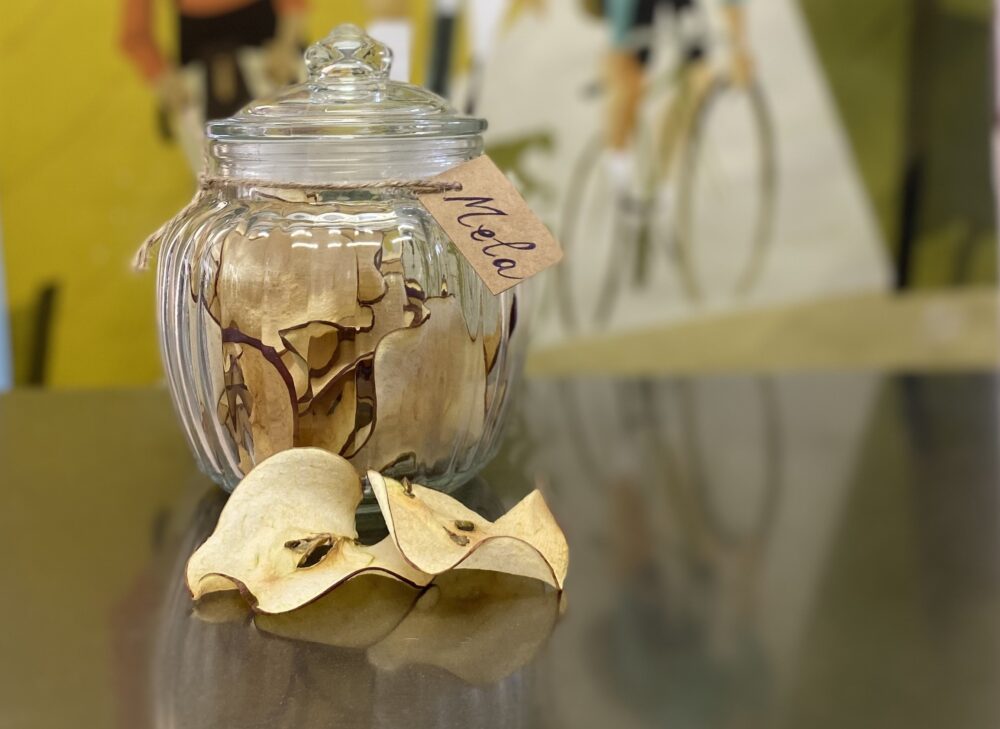
Orchard, Vegetable Garden, and Olive Grove
26 January, 2024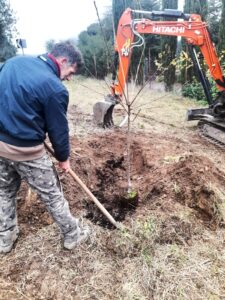
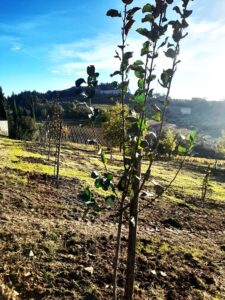
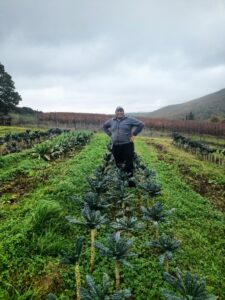
Throughout the history of Chianti farms, vegetable gardens and orchards have always been a basic source of sustenance. The garden provided vegetables all year round, while the orchard was an open-air larder for workers, offering nourishment and thirst-quenching fruit during the hot summer months. In the past, it was not uncommon to find fruit trees along the vineyards, sometimes even within them.
Today, in the Brolio orchard, we find a variety of plants including figs, cherries, apricots, peaches, plums, pomegranates, and jujubes, which have been grown for over 20 years on an ideally suited strip of land near the winemaking cellar. Recently, some ancient varieties have been replanted to diversify production. Having fresh fruit during the summer season allows us to enrich the table of the Osteria and Agribar: here, dried apples are greatly appreciated and requested all year round, served alone or in combination with a cappuccino.
In Brolio, in addition to the orchard, we manage a natural vegetable garden from which Franco Sangiacomo, Chef of the Osteria, draws daily to prepare traditional dishes of the Chianti countryside. Our gardener, Francesco, passionately dedicates time to the research of traditional and environmentally friendly systems, producing his own compost for autumn manure and reproducing seeds for the following year. The garden produces aromatic herbs such as thyme, marjoram, sage, and rosemary, as well as vegetables that enhance our salads such as carrots, tomatoes, zucchinis, chard, and spinach.
Speaking of good food, we cannot neglect to mention the tradition of our oil. In Brolio, olive cultivation covers about 15 hectares of the Ricasoli property, with a total of 4,000 plants of the Frantoio, Leccino, and Moraiolo varieties, the “unmatched Tuscan triad”. Cultivation takes place without the use of pesticides and chemical fertilizers, with pruning every two years and the land kept as grassland. Spring, during the 2023 olive growing season, was rainy and, at times, warm, with the rain partially affecting the flowers. The hot and dry summer, however, avoided the appearance of the olive fly and, thanks to the return of the rains at the end of October, the olives rehydrated and matured perfectly, allowing the extraction of an elegant and balanced oil in terms of spices and bitterness.
Thus, this year we bring to the table the precious Extra Virgin Olive Oil Castello di Brolio, made from Moraiolo, Leccino, and Frantoio olives from the Brolio olive grove, as well as a limited edition of two special monocultivar selections made from Frantoio (from the Tarci olive grove) and Moraiolo olives (from the Santa Lucia olive grove).
All this also contributes to the biodiversity of the “Brolio microcosm” encouraging pollinating insects.
